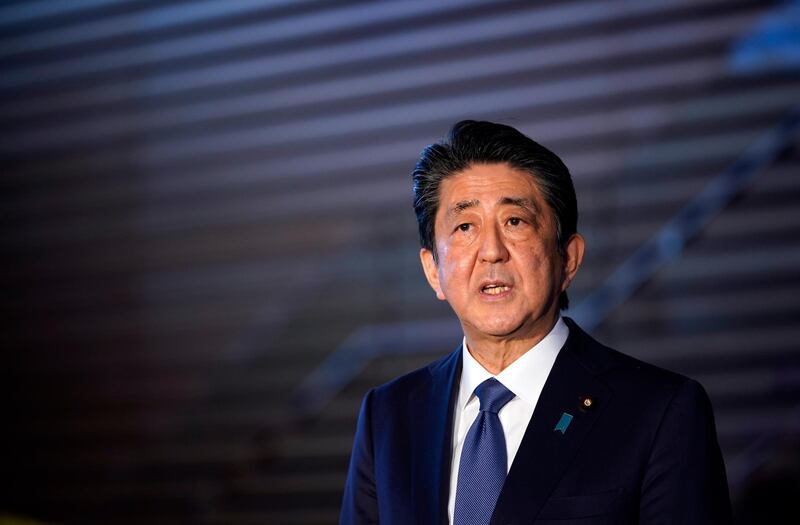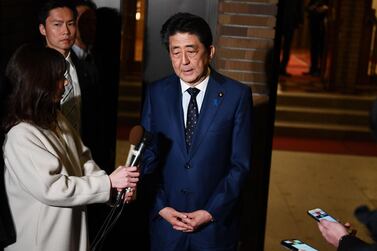Prime Minister Shinzo Abe announced a ¥108 trillion (Dh3.6tn) stimulus package, Japan’s largest yet, to rescue the coronavirus-hit economy with Tokyo and six other economic hubs set to be put in a state of emergency.
The package, equivalent to about 20 per cent of the nation’s economic output, will include cash handouts worth ¥6tn for households and small businesses hit by the virus and offers businesses deferrals on tax and social service costs worth ¥26tn, Mr Abe said on Monday.
The premier said he plans to officially declare a state of emergency for Tokyo and its three neighbouring prefectures, Osaka, Hyogo and Fukuoka by Tuesday. He said details of the stimulus package and an extra budget to finance it would be announced the same day.
The first phase of the package aims to stop job losses and bankruptcies, while a second round of aid, after the virus is contained, will try to support a V-shaped economic recovery, according to a government document obtained by Bloomberg.
“The details of the measures and the numbers involved are being debated until the last minute,” ruling party policy chief Fumio Kishida said earlier on Monday before Mr Abe spoke.
Economists see a deep Japanese recession ahead, with export markets paralysed, the summer Olympics postponed and the country’s capital facing the prospect of stronger stay-at-home requests.
According to the document, Japan is planning to distribute ¥300,000 to lower-income households that have lost pay because of the virus. Households with children will also receive aid.
For businesses, the measures offer larger subsidies for companies that keep workers on the payroll. Companies hit by the virus will be able to defer income and regional tax payments for a year. Some smaller businesses will have their property taxes cut back as far as zero.
For now, Japanese employment figures have been holding up. The country’s jobless rate remained at 2.4 per cent in February, but there has been a sharp drop in the ratio of available positions to the lowest level in three years. More recent developments showed a rapid adoption of emergency loans via a government programme for people who have lost their jobs or face wage cuts.
The document showed the government is planning a second phase of measures once the virus is brought to heel. While these measures are less developed, they include steps to increase consumer spending and tourism, and subsidies for regional economies.
The stimulus package also includes a plan to secure enough Avigan anti-flu drugs for 2 million people in the current fiscal year, the document showed.







